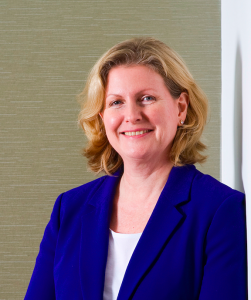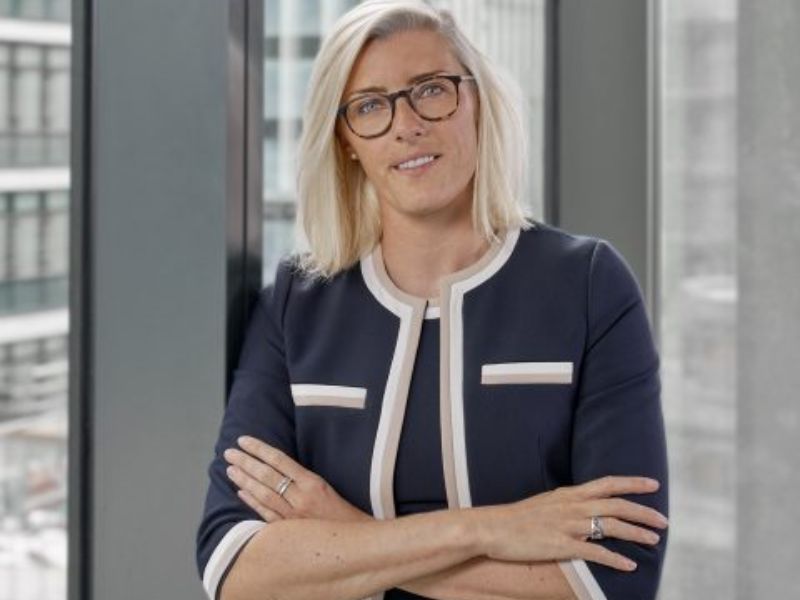Sian Fisher ACII is CEO of the Chartered Insurance Institute (CII).
She has held senior roles in a Lloyd’s Syndicate, a UK and European insurance company, a start-up intermediary, a market leading MGA, a major international broker and US corporate.
She was a founder and original Board director of the Managing General Agents’ Association and has held senior positions with both the CII and the Insurance Institute of London. She is a graduate of Oxford University with an Exec MBA from Harvard and is ACII qualified. Sian is a Vice President of the Insurance Institute of London and a Committee Member of The Insurance Supper Club.
She recently spoke to WeAreTheCity about her career journey, so far.
Did you ever sit down and plan your career?
When I was younger I had an idea of what I didn’t want to do. I had an idea of what I wanted to suit my lifestyle and that led me to wanting to be a lawyer – so I took a law degree. However, from what I saw I realised that this didn’t suit me. I knew that I wanted to work in London, in the City, and this lead me to financial services. Usually people think of banking and finance, when you think of the City, but I was told to consider insurance instead.
I was lucky enough to be invited to see the working environment at Lloyd’s of London and it was here that I realised what the environment would be like and how I could help people by working in insurance.
Have you faced any challenges along the way and if so, how did you deal with them?
It has been a challenge in terms of culture. Sometimes you might join a company that has a very different moral compass to you and sometimes you may find yourself working for someone who is only out for themselves.
What advice would you give someone who wishes to move in to a leadership position for the first time?
It is no good if you are lovely, but as a result you happen to be running your own company into the ground. You don’t have to be right all the time and you don’t have to imagine that no one will respect you if you show signs of not knowing something. You can show signs of confidence without knowing everything.
Young people in leadership sometimes struggle with this. You might be ambitious and driven, but you need a level of humility and humour to help you to learn your new leadership role too.
How do you manage your own boss?
You need a level of empathy towards someone who is more senior than you. They have things that they need to achieve too and pressures that are different to yours. You need to understand who they are and what their goals are for the organisation. Treat them as a member of the team too, because the bigger you are the less you usually know – even though your business objectives are bigger.
They need to trust that you are doing what you agreed and they need to realise that they cannot possibly meet their own business objectives on their own, without you and the team.
On a typical workday, how do you start your day and how does it end?
I don’t tend to have much of routine, but I do always start the day with a cup of Earl Grey tea.
What advice can you give to our members about raising their profiles within their own organisations?
Do something – change, lead and don’t always think you’ll gain something from it. However, it may get you noticed by those outside of your team and will give you great external exposure.
Be brave – particularly women, who may not always want to take a risk. If there’s a lion coming the other way then that is an immediate risk, but most of the time there isn’t.
Anyone who has really got somewhere has put themselves forward, or has shown willingness for their organisation or for others in the organisation. Be positive – a lot of people think that gaining profile involves complaining, but generally profile is gained through positivity.
How have you benefited from coaching or mentoring?
Leadership is not for everyone. You could have a mentor/coach/sponsor but still realise that it is not for you.
Coaching and mentoring works for a bit, but at the end of the day you need to be the person you need to be day-to-day without your coach being there to support you. However, a coach/mentor can be useful for knowing that you are not alone in the way that you are feeling.
Do you think networking is important and if so, what three tips would you give to a newbee networker?
Formal networking didn’t exist when I started, but I naturally like to share and have a sounding board. Sometimes it can be helpful to go along to a few things to get started and to connect with people with similar interests.
To some people, if you are isolated in your role, it can be nice to network however this won’t solve the problem of you being on your own. It is not going to just revolve around you – you need to find a way of using it.
What does the future hold for you?
I’m careful about what I get involved in, but I don’t sit down and think ‘would it hugely benefit me?’ I think, would I enjoy it, would I be about to make a difference?
I don’t worry about what I’ll do next – I worry about what I’m doing now and then what I’ll do next starts to become more obvious.









